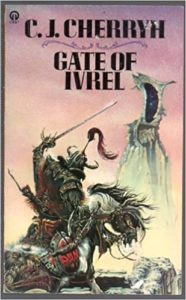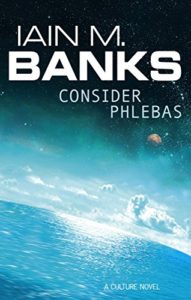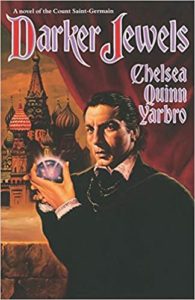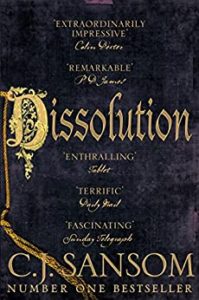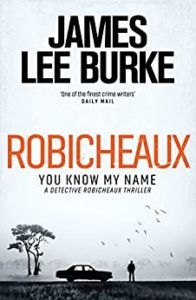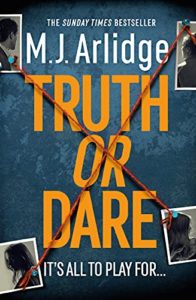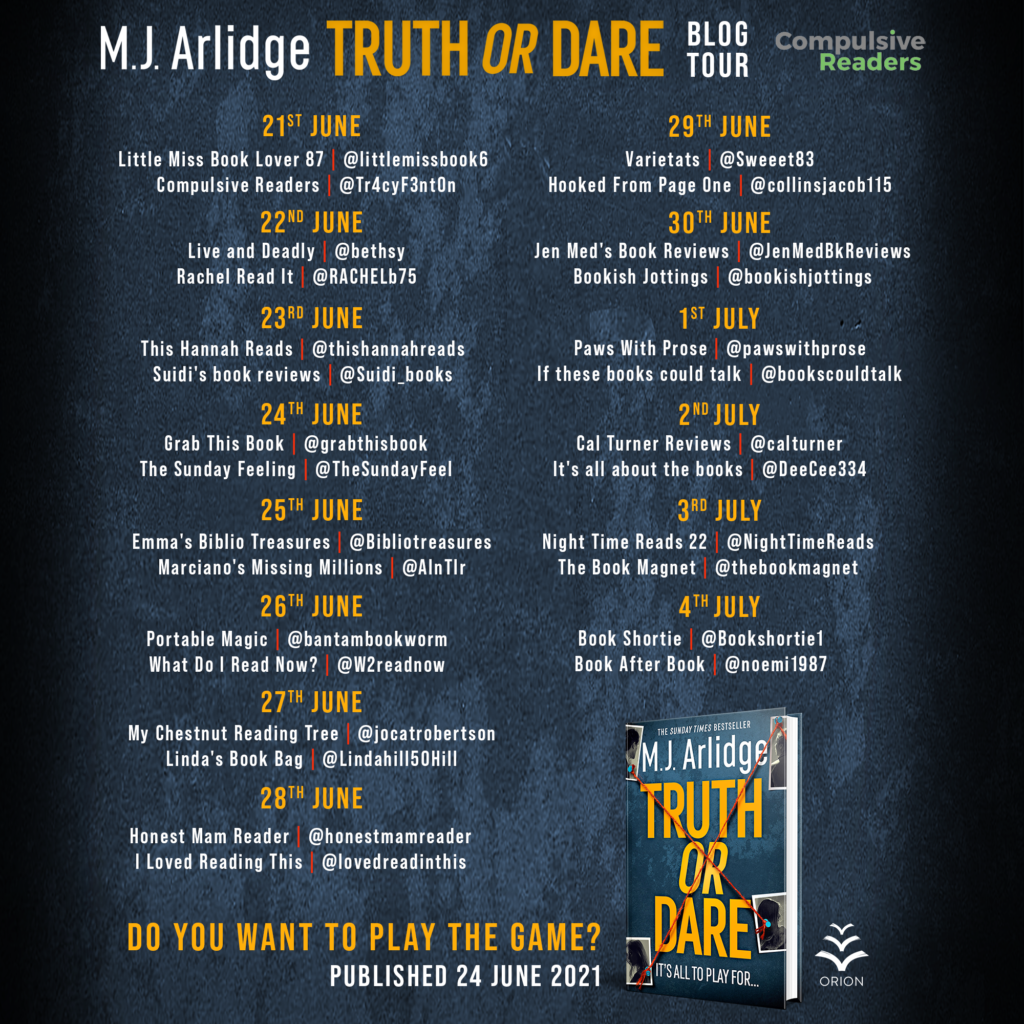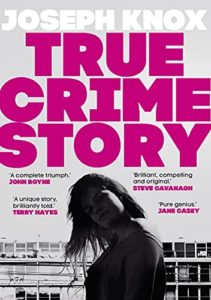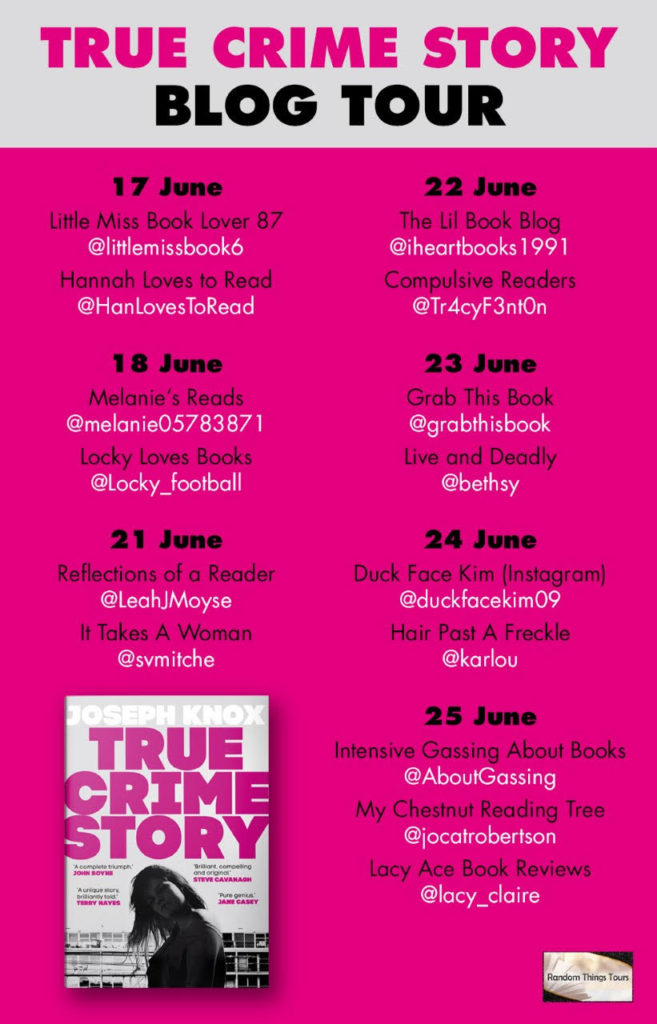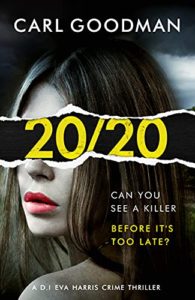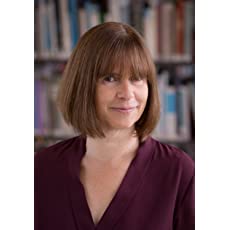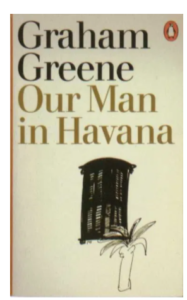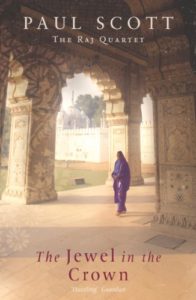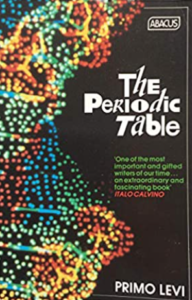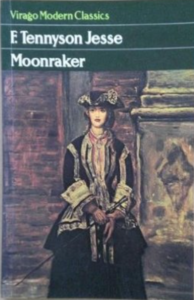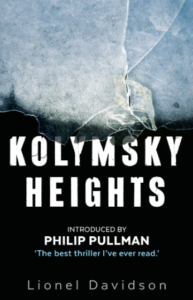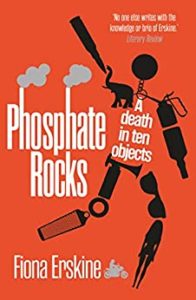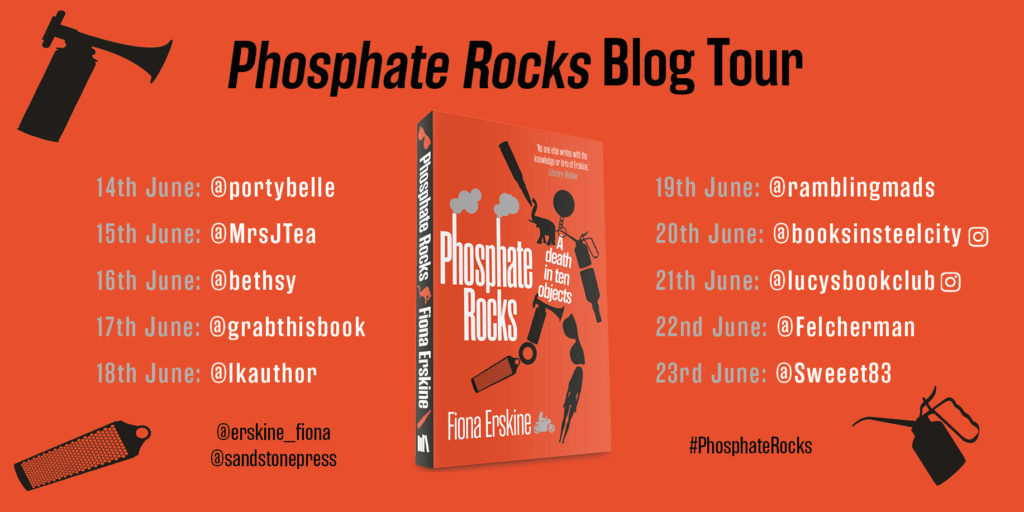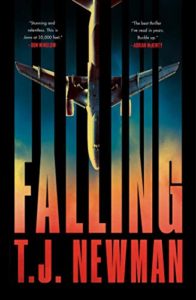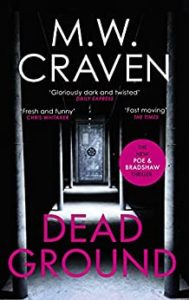In January I began a quest to curate the Ultimate Library. I had no idea which books should be included and I knew the only way to get the very best books represented in my Library was to ask booklovers which books they would include. We started with nothing. Nada. Zero Books. Each week I ask my guests to nominate ANY five books which they would like to see added to the Library shelves.
Six months on I think we have one non-fiction title (no Haynes manuals), two books which are children’s stories, we have a vampire, a Belgian Detective embarking on his first investigation at Styles, a book about a shark, a Fight Club and many, many more.
When choosing their five books my guests are slightly restricted in their selections. I don’t ask for their five favourite books as that way leads to chaos. I insist that my guests can only select one book per decade and they must choose from five consecutive decades. My new favourite reaction to my insisting on the consecutive decades was a simple message which read “you monster”. The identity of that guest remains a mystery for the moment but perhaps when I share his selections a few weeks from now I shall remind him of that interchange.
Today, however, my guest was politeness personified and I am therefore delighted to hand you over to Jonathan Whitelaw.
DECADES
 Hello everyone, I’m Jonathan Whitelaw and I’m an author, award-winning journalist and broadcaster. When I’m not blowing my own trumpet with all of those inflated titles, I write the HellCorp series about The Devil solving crimes, along with the Parkers Sisters books – cozy mysteries following the adventures of three Glaswegian siblings. From the dark to the light you might say.
Hello everyone, I’m Jonathan Whitelaw and I’m an author, award-winning journalist and broadcaster. When I’m not blowing my own trumpet with all of those inflated titles, I write the HellCorp series about The Devil solving crimes, along with the Parkers Sisters books – cozy mysteries following the adventures of three Glaswegian siblings. From the dark to the light you might say.
My latest novel is Banking on Murder – the first of the Parkers books. It sees Martha, Helen and Geri – three sister PIs from Glasgow tackle their biggest crime yet – the murder of a high-flying banker. Taken out of their comfort zones and thrown firmly to the financial lions, the Parkers are up to their necks in trouble from the off as they try to protect a grieving widow from ending up in the slammer.
I’m absolutely delighted to be taking part in Decades. As much as everyone moans that they can’t pick their favourite film/TV/show/book etc, we all secretly love it. And it’s a brilliant chance to revist good times gone by and look forward to even more special memories in the future. Without further ado, I present you my choices. Be gentle.
1960s – Dune by Frank Herbert
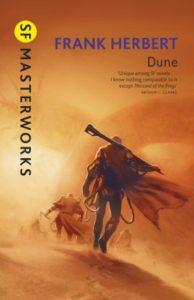 What a decade! The old adage that if you remember the sixties then you weren’t there. Which is certainly true for me as I wasn’t born for another twenty years. But in terms of cultural legacy and impact, there’s a strong argument to be made that we’re STILL feeling the effects of this particular decade so long on.
What a decade! The old adage that if you remember the sixties then you weren’t there. Which is certainly true for me as I wasn’t born for another twenty years. But in terms of cultural legacy and impact, there’s a strong argument to be made that we’re STILL feeling the effects of this particular decade so long on.
And that’s certainly true for the literary scene. There are thousands of possibilities I could have chosen from this decade. The later James Bond novels, John la Carre coming into his own, everything Arthur C Clarke touching turning to gold – and that’s just in the spy and sci-fi genres. I could literally go on forever.
That said, I’m going to pick one and that’s Frank Herbert’s Dune. I was gifted a Dune omnibus for Christmas when I was about 15 and that was me hooked. I can’t get enough of this series, this world, this universe that Herbert created. There’s always been something deeply fascinating about the construction of Dune’s cosmos that’s always triggered that innate, cerebral part of my reading brain that just wants more and more and more.
As a child of the 1990s, what makes all of Dune even MORE incredible is that it pre-dates Star Wars by a considerable margin. Released in 1965 – right slap, bang in the middle of the swinging sixties, it has all the hallmarks of a space opera that we all take for granted now. Ancient mysterious races, intergalactic politics, cosmic forces at play, the lot. It was and arguably still remains ahead of its time.
I also love that it’s one of the most quoted books as being ‘unfilmable’. There have been a few attempts at bringing it to the screen, each with its own merit. And another massive all-star cast blockbuster on its way later this year. I don’t like the ‘unfilmable’ tag as I don’t believe that with the right motivation and tact, you can translate any great bit of literature to another medium. But it’s a testimony to Herbert’s vision, forthrightness and general delivery that his masterpiece remains one of the hardest challenges even to this day.
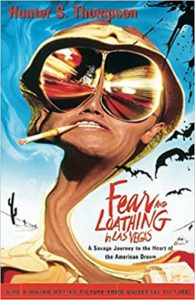 1970s – Fear and Loathing in Las Vegas by Hunter S Thompson
1970s – Fear and Loathing in Las Vegas by Hunter S Thompson
Ah, the 1970s – the decade that style forgot. Brown carpets, brown walls, brown curtains… just brown. It’s the sobering aftermath of the liberated 1960s and my god did the world feel a comedown and a half.
Step into the fray Hunter Stockton Thompson – a man seemingly built to cause chaos and mayhem wherever he went. As a full-time journalist, I can’t help but feel my teeth itch and imagine the stress and strain he must have put his editor under. I can tell you right now that HST wouldn’t cut it in the modern newsroom. Search engine optimisation, social media stats and paid for posts just wouldn’t fly with this man.
But that’s okay. Fear and Loathing in Las Vegas is about as mental and bloody-minded as the whole 70s decade could get. Sent to cover a race for Sports Illustrated, only he could file copy that became “a savage journey into the heart of the American dream.”
It’s not an easy read. And yes, even I admit that it’s dated beyond all recognition. But isn’t that the point? Fear and Loathing is a literary time capsule and look into a world that was very much trying to come up with its own identity. It’s hailed as the defining work of so called ‘Gonzo’ journalism which, for more reasons than I can care to remember, are now a long-distant memory.
That’s why I like it. I try to read it at least once every couple of years and have done since I was in my early 20s. The book itself is overrated, pumped up and given plaudits by people who mostly haven’t read it. It’s been taken over by stoner and undergraduate stoner culture who like to treat it as their bible on how to live a rock and roll lifestyle… without actually having to live said rock and roll lifestyle.
I treat myself to these little re-reads to remind myself of what it must have been like back then. But I don’t take it too seriously. That, I think, was HST’s point.
1980s – Money by Martin Amis
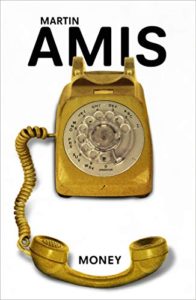
It seems only appropriate for the decade that made braces popular, Filofax a thing and introduced us all to the horrors of mobile phones that my choice features money in the title. Semi-autobiographical, the sheer rudeness of Amis’ style and confrontational of his characters are what stick in my mind.
I was introduced to the book around 2010 when there was a BBC adaptation for TV starring Nick Frost. I enjoyed the series but I prefer the book (if I had a £1 coin for every time I’ve said that…).
It’s loud. It’s garish. It’s in your face. It’s ugly. It’s boozy. It’s angry. And above all else, it rings true to the world it was unleashed into. For my money (pun intended) there are no better cutting satirists than Amis. And while I’m not a massive fan of ALL of his work (not that he gives a toss of course) – this one really stands out for me.
And I can’t talk about Money without mentioning the fact the central character is called John Self. Every time it comes up in the book it feels like a weighty sledgehammer of tongue-in-cheek irony that never gets old. This is a book that is bored itself to sleep by only being a book. And Amis fills every page, every sentence even, with that charged venom that can only make you want to be a better writer.
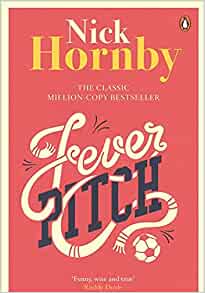 1990s – Fever Pitch by Nick Hornby
1990s – Fever Pitch by Nick Hornby
I think this was my toughest choice. When it comes to picking books for this list, I tried to immediately think of something that sums up their decade of publication perfectly. And it was a toss-up between this and Trainspotting by Irvine Welsh. In the end I’ve gone for Fever Pitch, mostly because there are still parts of Trainspotting I can’t decipher – despite living on the border of the New Town and Leith for over three years!
Released in the same year as the start of the new Premier League, I genuinely can’t think of another writer who could capture the site, sounds, smells and soul of the decade that has, more than any other, shaped the way we do things now.
His characterisation of a die-hard football fan almost created the prototype of how the sport would go on to look over the next 20+ years. Gone is the tattooed casual, in its place a normal human being who absolutely loves the game and everything that goes around with it. More importantly, it’s the way Hornby uses the footie as a mechanism to tell what is ultimately a story about hope and growing up.
This is another of my go-too reads if I’m looking for a pick-me-up or a bit of nostalgia. Again I didn’t read it for the first time until my 20s and by that point the world had moved on from Hornby’s early 1990s utopia. But as a child who grew up while all of this unfolded around his ever growing ears – it’s always a lovely jaunt down memory lane to pick it up and re-enjoy.
2000s – The Da Vinci Code by Dan Brown
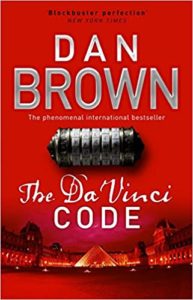 I think I can hear your scoffing from here. But I beg of you, before I’m carted away by the taste police, just hear me out. There IS a logic to this, I promise.
I think I can hear your scoffing from here. But I beg of you, before I’m carted away by the taste police, just hear me out. There IS a logic to this, I promise.
Released in 2003, this is the first novel I can ever remember being what you would call a blockbuster. It was EVERYWHERE. From reviews to TV interviews, scandal and sacrilege seemed to court this novel wherever it went – which was quite literally every corner of this blue and green marble we call a planet. If it wasn’t being condemned for its topic it was being blasted for its style.
Now, no matter what you think of Mr Brown or this novel, you have to agree that it’s a pretty hard gig to achieve both notoriety AND sell a bazillion copies at the same time. Any publicity is good publicity – as a certain former President used to like to remind us. It’s to that end that I hold The Da Vinci Code dear.
It’s also one of the first books I read as a late schoolboy that I genuinely enjoyed for the first time in what felt like forever. Compulsory reading lists, endless essays and forensic analysis for exams etc meant that I spent about five years of my teenage life reading for necessity instead of fun. And for a boy who had grown up reading non-stop for escapism and adventure, that was a pretty hard pill to swallow.
I am, if nothing else, a contrarian. I bought my copy from Borders in Glasgow city centre. I took it to the counter, a smug satisfaction oozing out of my school uniform as I handed over the crumpled tenner for this book that EVERYONE hated. I was going to read it, damn it, and I didn’t care what you all thought of me. Oh to be 17 again.
To my surprise, and bitter disappointment, I loved it. There’s a very good argument to be made that The Da Vinci Code set me off on what’s been an unbroken path of non-stop reading since that moment. And if I hadn’t gotten all the way through it back then, I fear my career as an author, if not life in general, might have been VERY different.
There’s something to be said for genre fiction and big, blundering thrillers like this. Sometimes, just sometimes, they go a long way to opening doors that might, for one reason or another, have closed forever.
My thanks to Jonathan for these thumping suggestions. I never fail to be surprised by the books which are suggested for inclusion but if you had told me six months ago that The Da Vinci Code made the cut before Shogun, Wild Swans or anything by Jackie Collins I would have been stunned. I also had a moment of wistful nostalgia – Borders in Glasgow was one of my favourite bookshops and I miss it deeply.
If you want to see all the books which have been added to the Library you can visit here: https://grabthisbook.net/?p=5113
DECADES WILL RETURN
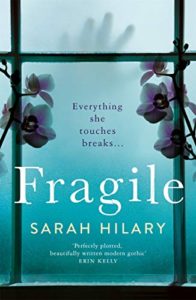 Everything she touches breaks . . .
Everything she touches breaks . . .
